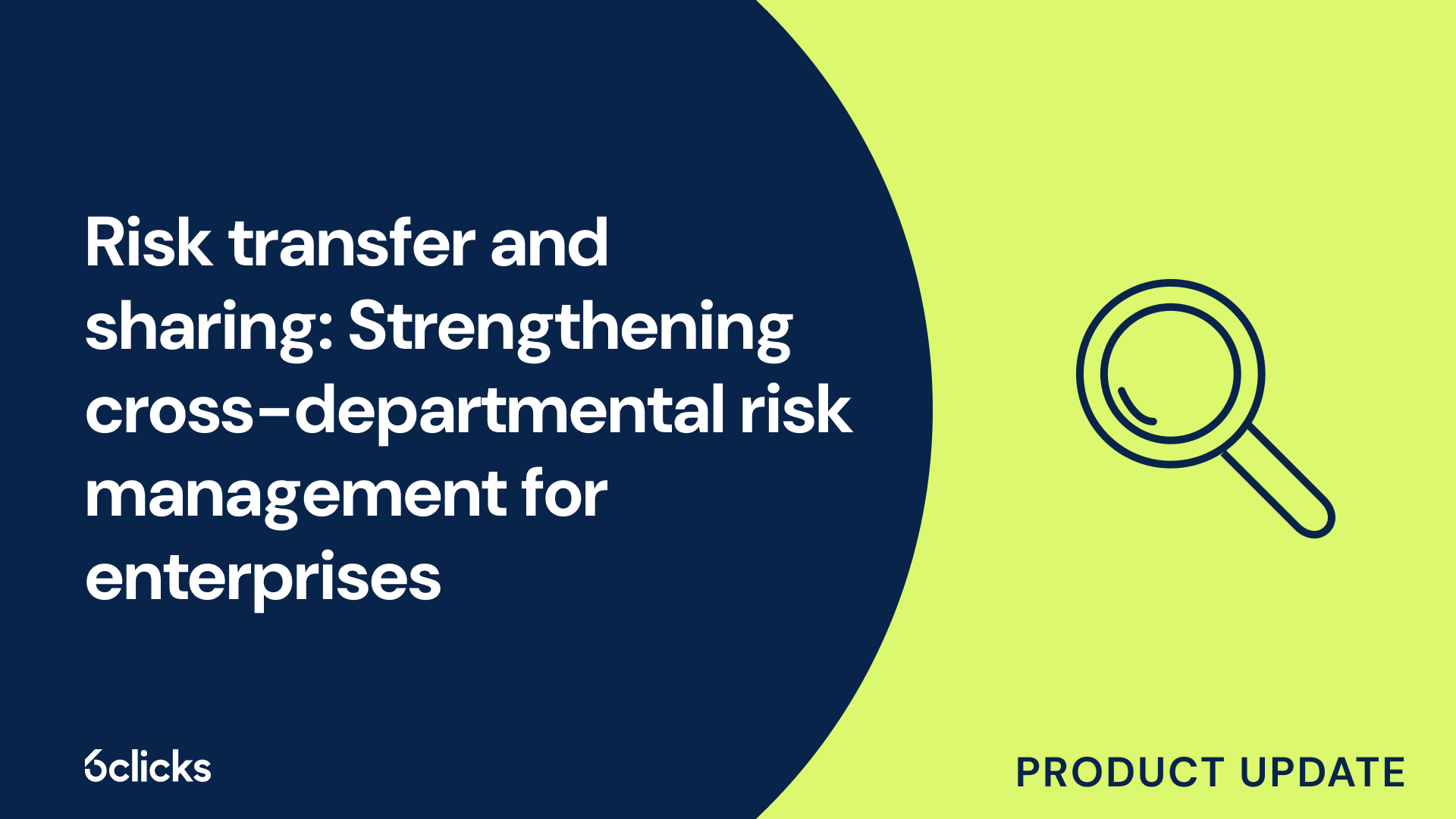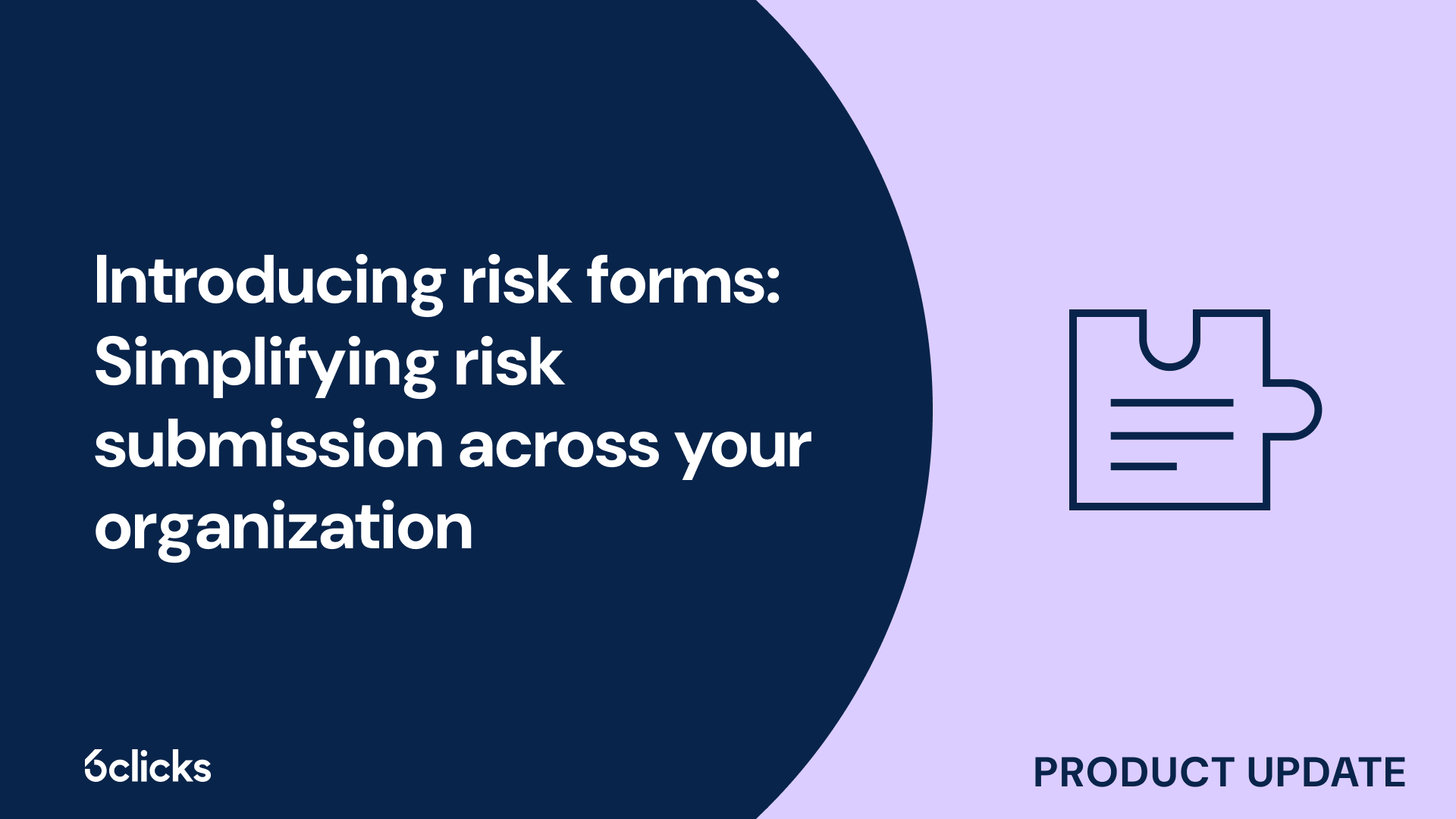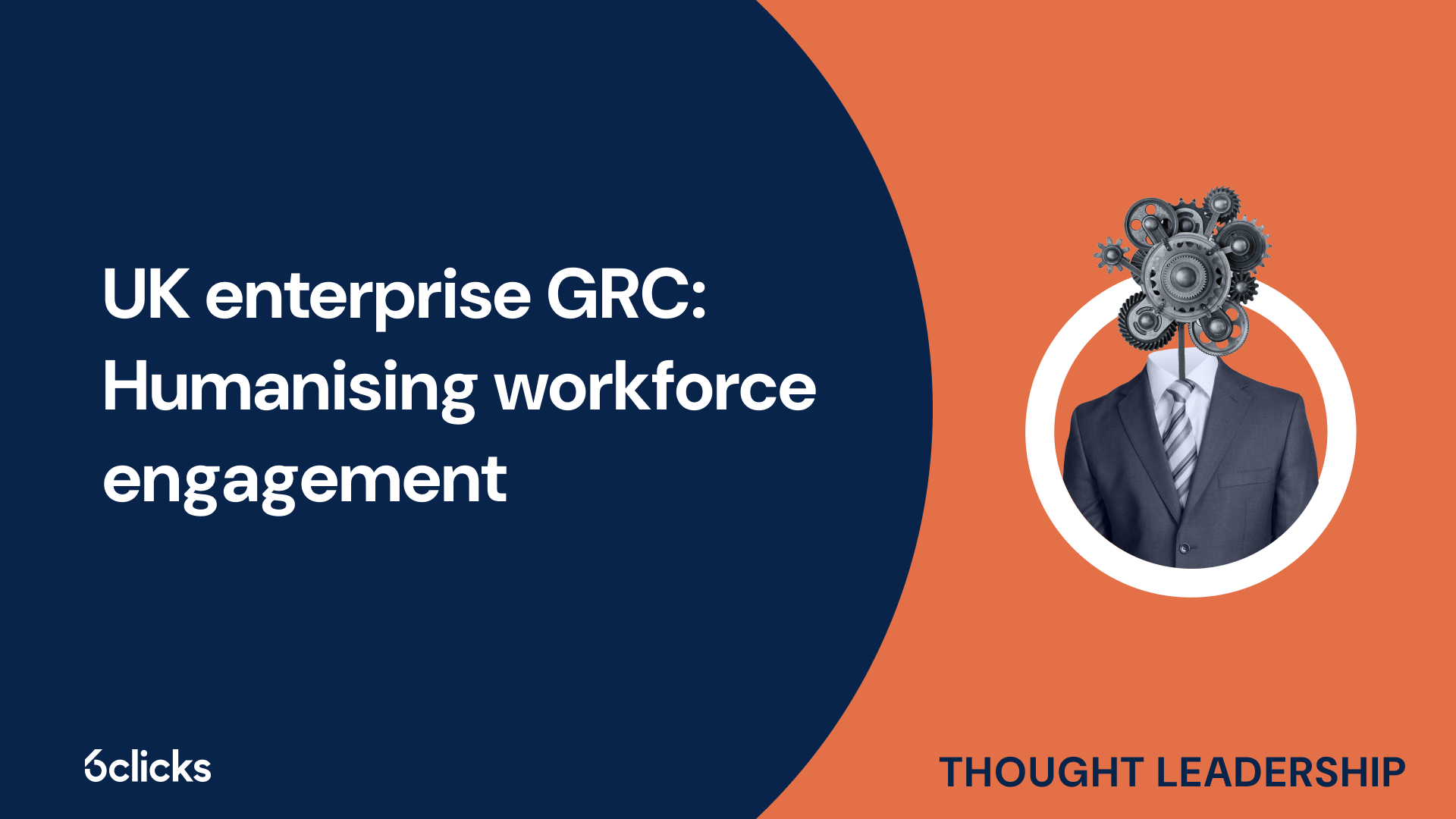Automated enterprise risk management
Say goodbye to spreadsheet-based risk registers, time-consuming risk management processes and manual reporting.

The GRC platform powering today's risk and compliance professionals



Enterprise Risk Management solution overview
The 6clicks Enterprise Risk Management (ERM) solution offers a structured approach to effectively manage your organizational risks, incorporating a comprehensive risk management program. Leveraging the 6clicks Platform and adhering to standardized risk assessment methodologies, our ERM software facilitates accurate risk identification and understanding of risk exposure at multiple levels within your organization. Through multi-dimensional risk and control assessments, both qualitative and quantitative parameters contribute to establishing a robust risk profile. Real-time insights are provided by powerful analytics, advanced heat maps, reports, dashboards, and charts, empowering you to make smarter, data-driven, and risk-aware decisions throughout your risk management journey. The solution also includes a user-friendly risk register, ensuring no critical risk goes unnoticed and bolstering your organization's ability to safeguard its future.
Simplify risk management with 6clicks
Identify, manage and treat risks
Leverage the power of 6clicks' comprehensive risk management solution to optimize your existing workflows and processes, effectively reducing reliance on spreadsheets and minimizing costs while building trust and accelerating revenue. With our integrated risk management framework, seamlessly identify, manage, and treat potential risks within a single platform, streamlining your entire security and compliance journey. Stay ahead by maintaining a clear view of your risk profile, ensuring efficiency, and proactively addressing risk identification throughout your organization. Embrace 6clicks' risk register functionality to enhance risk visibility, making your risk management efforts more robust and effective.
.webp?width=672&name=Risk-management-feature-identify-manage-and-treat-risks%20(2).webp)
Automate risk assessments
Incorporate 6clicks' versatile risk management framework and capability to define and communicate your organization's risk appetite and tolerance levels, ensuring comprehensive control over the entire lifecycle of risk assessment processes. With the ability to select specific risk assessments and customize values and workflows, you can align risk evaluations precisely to meet your organization's unique requirements. Stay proactive in managing potential impact and likelihood by utilizing insights from the risk register and related compliance activities, enabling you to make informed decisions and implement effective risk control measures throughout your organization.

Create custom risk workflows
With 6clicks' adaptable risk management framework, our solution seamlessly caters to organizations of any size or scope. Construct your risk lifecycle workflow effortlessly within the platform, tailoring each stage to suit your specific needs. Define the stages involved, outline the fields for completion, and designate mandatory fields for enhanced accuracy. Arrange the order of stages as per your preference and provide clear instructions to end users, streamlining the entire risk management process. Whether you're dealing with different types of risk or managing risks across various departments, our flexible risk register and intuitive risk workflow empower you to effectively oversee the management of risk and enhance your organization's risk assessment and control measures.

Generate insightful risk reports

Explore our Enterprise Risk Management Expert's Guide
This authoritative guide provides an overview of enterprise risk management (ERM) and its essential components. It is designed to help business leaders understand the fundamentals of ERM and develop the skills and knowledge needed to effectively manage risk in their organizations.
Integrated powerful features
Explore the features related to this solution making it easy for you to get up and running in minutes.
Risk Management
Our state-of-the-art risk management solution automates formerly manual processes and optimizes the entire risk lifecycle, encompassing risk identification, risk assessments, risk mitigation, remediation, and reporting.
Continue >Audit & Assessment
By minimizing manual tasks, our solution empowers audit professionals to effectively manage the entire audit management lifecycle, including audit plans and seamless collaboration among team members.
Continue >Vendor Risk Management
Implement a robust and defensible assessment process for your third-party suppliers and manage risks across your supply chain.
Continue >The Enterprise Risk Management content available in the 6clicks Content Library
Explore the related content below.
Latest updates

Risk transfer and sharing: Strengthening cross-departmental risk management for enterprises
Large enterprises operating with federated business models often face a common challenge: managing risks across multiple business units is complex,...
Why businesses and advisors choose 6clicks
Build resilient security risk and compliance programs.

Powered by artificial intelligence
Experience the magic of Hailey, our artificial intelligence engine for cyber risk and compliance.

Unique Hub & Spoke architecture
Deploy multiple teams all connected to a hub—perfect for federated, multi-team structures.

Fully integrated content library
Access hundreds of frameworks, control sets, assessment templates, libraries and playbooks.
Intelligently accelerate your cyber risk and compliance program today




